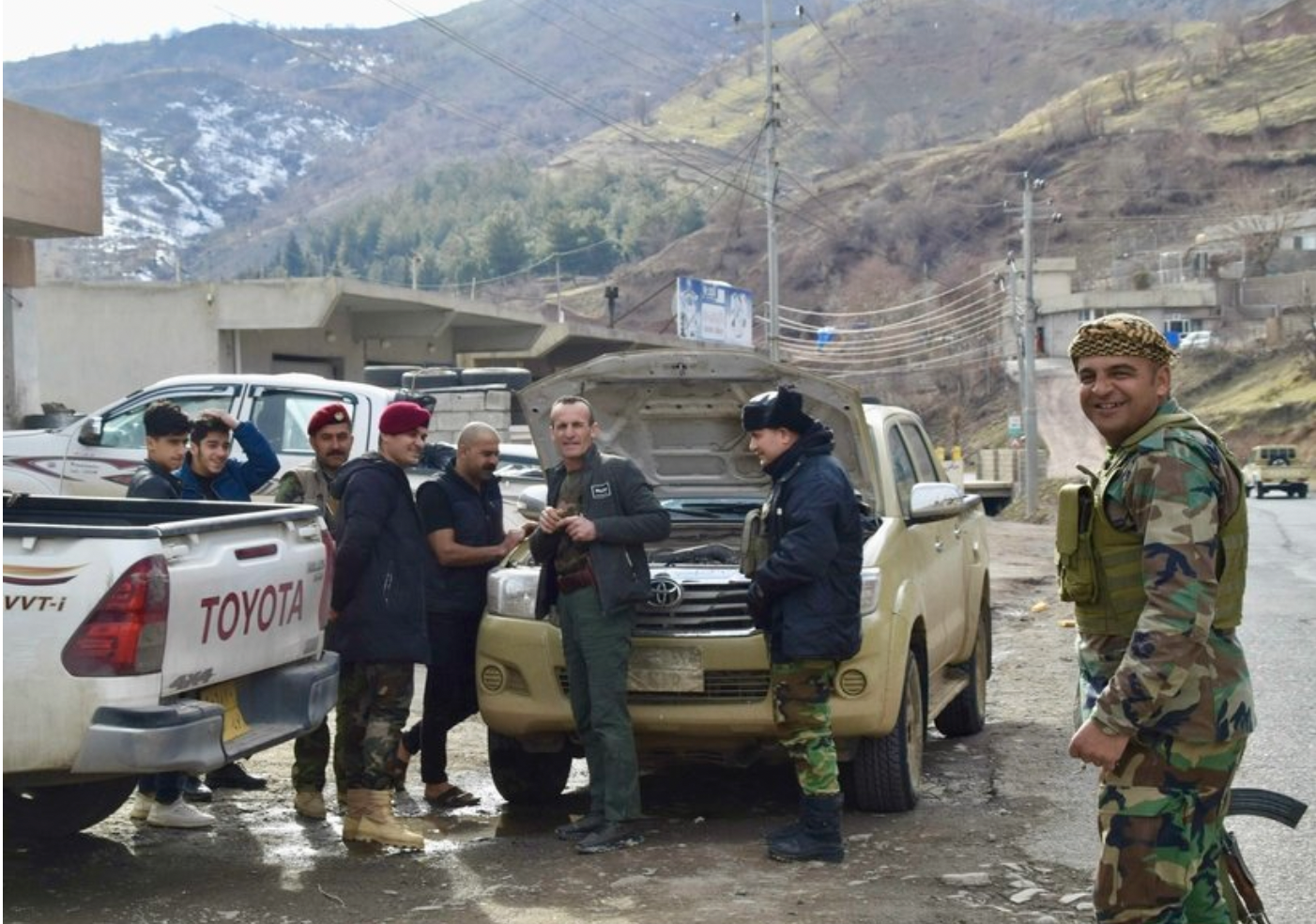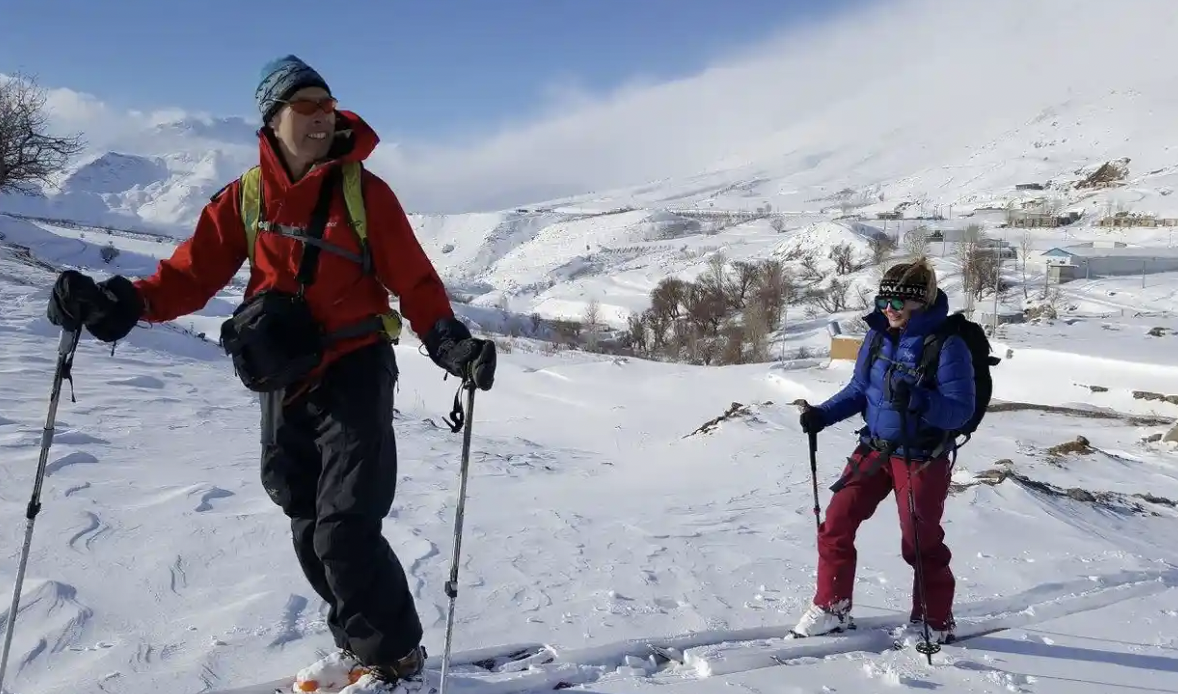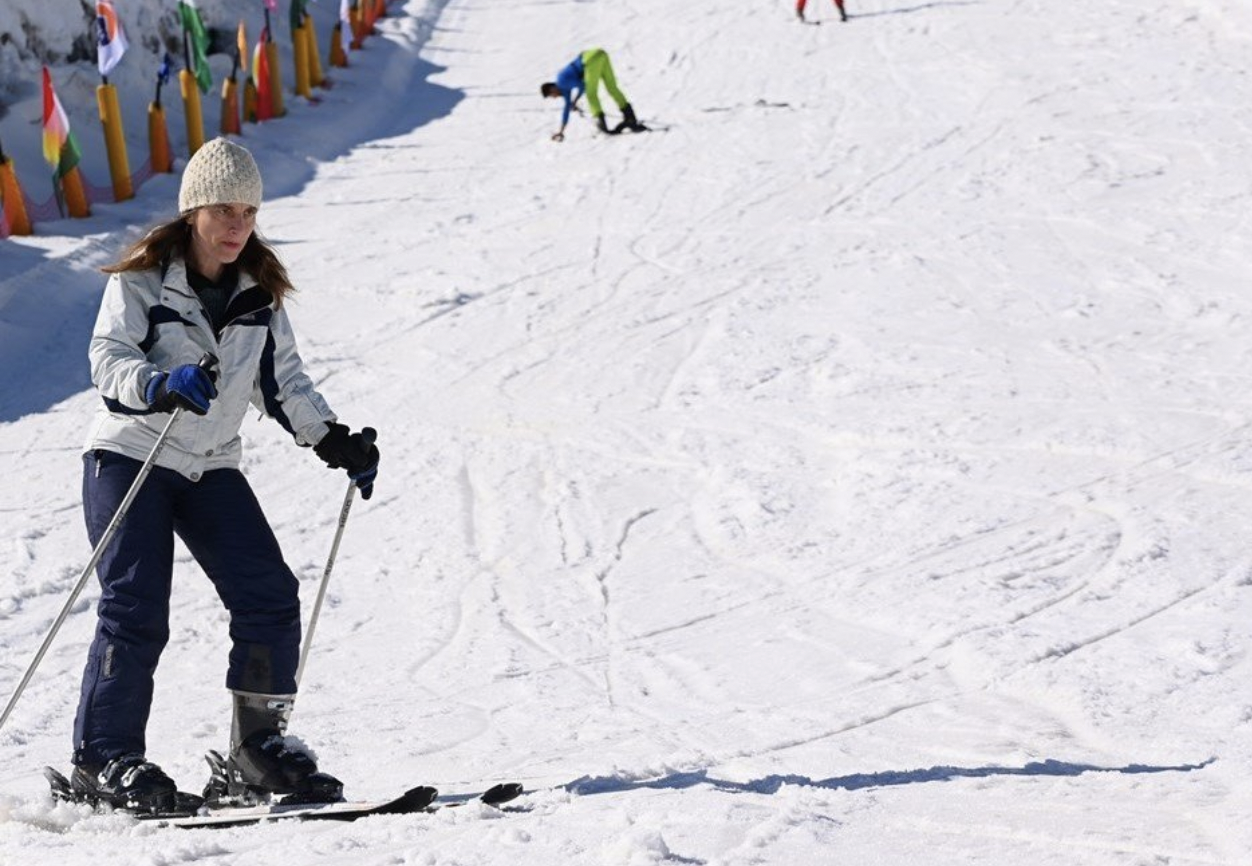Air Mail: Double Black Diamond in the Rough
/Everyone is welcome, as long as you can walk back up once you ski down.
About 330 winding, transmission-straining miles north of Baghdad’s Green Zone, in the autonomous Kurdistan region of Iraq, Iraqi Kurds, and a few foreigners, are re-discovering skiing near the border with Iran.
Here on Mount Halgurd—the second-highest mountain in Iraq—the ski runs are good, the powder is fresh, and the tourist crowds remain nonexistent. Take a photograph and, if you Photoshop out the squat, concrete houses and the military checkpoints, you could easily be in Telluride or Whistler, Verbier or Courmayeur.
There are a few other differences, too. The Kurdish soldiers manning the checkpoints often get bored and can detain visitors for an interminable amount of time. Leftover land mines from the Iran-Iraq War, in the 1980s, remain buried beneath the snow. But neither of those obstacles deterred 35 people, including eight teenage Syrian refugees, three Americans, two Europeans, and about 20 locals, from coming here for the Third Annual Iraq Ski Rally, which took place from February 19 to 22.
Kurdish soldiers guard the area around Choman. On occasion they join in on the skiing, too.
Skiing in Iraq is not as much of a misnomer as it may sound. Black-and-white-film footage from 1952 shows Iraqis zigzagging down Mount Halgurd on wooden skis. However, there’s been little skiing since the end of the reign of King Faisal II, in 1958, after which a series of wars between the Kurds and Iraq’s central authority, Iraq’s invasions of Iran and Kuwait, and the 11-year occupation by the United States discouraged almost all tourism, let alone adventure expeditions.
Omar Hussein, 34, grew up in Choman, a village a few miles from Mount Halgurd. He often heard stories about how, in the 1970s, before Saddam Hussein seized power, his father’s friends and neighbors would climb up the mountain, clip on wooden skis, and sail down the slope. When he was a teenager, Hussein and some of his teenage friends tried it themselves. Lacking the proper ski equipment, they used their sneaker laces to tie themselves to old skis and pushed off downhill with their lives in their hands.
Choman or “Chomanix”?
Then, in 2011, a Norwegian skier named Kit Monsen came to the area in an attempt to become the first person to ski Halgurd (11,834 feet) and the nearby Cheekha Dar (11,847 feet), which straddles the Iran-Iraq border. “All I heard was that there is snow at this time of year so I brought my gear and off we went,” Monsen told Travelmag. Hussein helped lead the team, but rain and snow kept them from the top.
It wasn’t until February 2018 that the American mountaineer and Iraq War veteran Stacy Bare, in partnership with Dutch guide Jan Bakker, led the first complete ski ascent and descent of Halgurd. They went away nicknaming the mountain range “Chomanix,” a twist on the renowned French skiing village of Chamonix.
These attempts gave Hussein an idea. “I bought these other cheap skis from Iran, and we started skiing around.” Then, when other private expeditions from Europe and America arrived in Choman, he bought their skis, too. “Soon enough we had enough for a small club.” Hussein is now the owner of the adventure outfitter VI Kurdistan and co-founder of the Iraq Ski Rally.
A backcountry skier sails down a pristine run in Iraq’s Zagros Mountains.
“For those who want to just ski a nice piste, have a beer, then go to a disco, it’s probably not so appealing,” said James Willcox, co-founder of adventure-travel company Untamed Borders, which brings a group of international tourists here most years. But, he adds, “the chance to truly blaze a tourist trail is a rare opportunity.”
This year a group of holidaying NGO workers aided Hussein’s company in constructing a makeshift downhill course for the ski rally. They then helped newcomers and regulars alike strap on new K2 skis and led each other down the piste before hiking back up and doing it all again—depending on how many tumbles they had taken. On the second day of the event, the group’s top skiers climbed to a nearby ridgeline and skied down as fast as they could, with awards given to the top three “local” skiers and the top three “international” skiers.
Winners of the downhill race during the second Iraq Ski Rally. Each participant climbed up 2,000 feet before skiing down.
While the Korek Mountain Resort to the west offers the country’s one and only chairlift, and a mediocre skiing experience, to backcountry enthusiasts the area around Choman offers seemingly unlimited runs. But adventure tourists and local skiers face a tough buy-in from the regional government and the military.
Stringent searches—or “having tea”—with the local and regional police in Choman happen frequently to outsiders. And while Sasan Othman Awni, the minister of municipalities and tourism of the Kurdistan Regional Government, says he is open to adventure tourism, according to Hussein, most of the ministry’s people “don’t really know the meaning of adventure; they [only] know about tourism.”
For now, however, the slopes of Europe get more crowded, and the people of this region, who have been leaving—and dying—on boats bound for Europe, hope that the likes of Vail Resorts, Alterra Mountain Company, or the Powdr Corporation will share their vision and help popularize skiing in Iraq.
“There is more to our country than oil and war,” says Hussein. “There is so much natural beauty here and so many friendly people—it has forever been overlooked by everyone.”






















